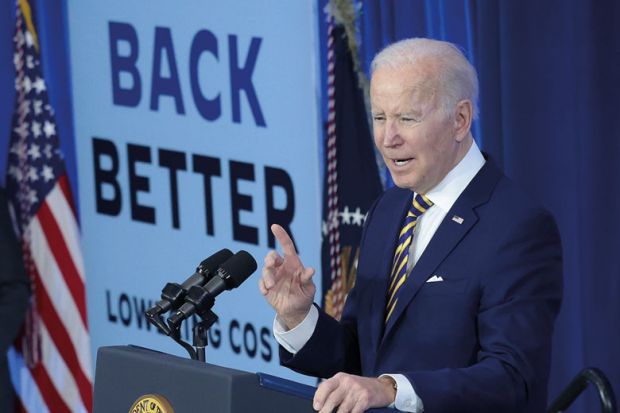In a significant move, the Biden Administration announced a new policy on Thursday that empowers it to seize patents for pharmaceuticals developed with government funding if their prices are deemed exorbitant.
This policy outlines the framework for the government’s “march-in rights,” a tool never utilized before. These rights enable the government to issue additional licenses to third parties for products developed with federal funds if the original patent holder fails to make them available to the public under reasonable terms.
According to the draft roadmap obtained by Reuters, the government will evaluate factors such as the affordability of the drug for a limited patient group and whether drug manufacturers are exploiting health or safety concerns through price hikes.
White House adviser Lael Brainard emphasized, “We’ll make it clear that when drug companies won’t sell taxpayer-funded drugs at reasonable prices, we will be prepared to allow other companies to provide those drugs for less.”
Notably, the U.S. government has previously refrained from seizing patents for expensive drugs, including the decision in March not to compel Pfizer and Astellas Pharma to reduce the price of their prostate cancer drug Xtandi.
The public will have a 60-day window to provide feedback on the proposed policy before finalization.
Vanderbilt University professor Stacie Dusetzina expressed concern that the policy might discourage industry investment but acknowledged its potential as a credible threat against industry unreasonableness.
PhRMA, the leading pharmaceutical industry lobby group, denounced the policy, with spokesperson Megan Van Etten stating that using march-in rights based on price would hinder innovation and harm patients. She argued that the move would revert to a time when government research remained inactive, benefitting no one.
Introduced in the Bayh-Dole Act of 1980, march-in rights serve as a safeguard allowing inventors to retain ownership of inventions developed with public funds. While the National Institutes of Health (NIH) has the authority to seize patents of federally-funded medicines, former NIH director Francis Collins suggested that march-in rights couldn’t be used to lower drug prices.
Recently confirmed NIH Director Monica Bertagnolli expressed concerns over high drug prices, emphasizing her commitment to using every available tool to ensure patient access. The new policy responds to calls from progressive Democratic lawmakers criticizing drugmakers and urging the administration to leverage march-in authority to address soaring drug prices.
In response, Joseph Allen, director of The Bayh-Dole Coalition, noted that Congress might challenge the policy’s compatibility with existing law if deemed necessary.




